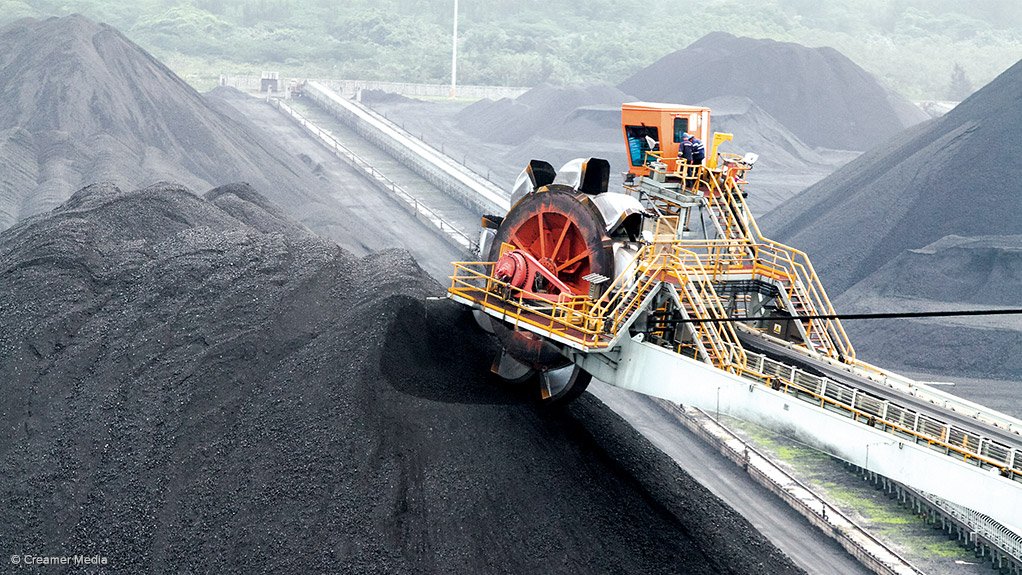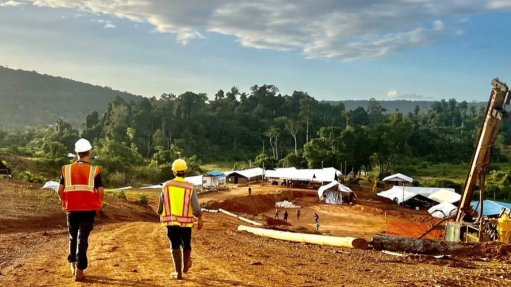Eskom’s problems are not coal related, Minerals Council assures
JOHANNESBURG (miningweekly.com) – A social media campaign set on halting coal exports through the Richards Bay Coal Terminal to purportedly alleviate Eskom’s loadshedding has been noted with concern by Minerals Council South Africa.
“This campaign is not based on any facts and instead relies on outright fallacious allegations that Eskom’s inability to keep South Africa adequately supplied with electricity is allegedly because of the country exporting coal,” the council noted in a release to Mining Weekly.
“This is a wrong diagnosis of the challenges Eskom confronts. Eskom’s low energy availability factor, which is the cause of loadshedding, is because nearly half of its coal-fired power station fleet is out of operation due to a high number of breakdowns and planned maintenance. Eskom is not short of coal and continues to receive all the coal it expects from its contracted suppliers,” the council added.
The State power utility has 31.8 days of stockpiled coal at its power plants against a required minimum of 20 days, Eskom’s national spokesperson Sikonathi Mantshantsha has confirmed. Further, Eskom receives contracted and expected deliveries of coal continuously.
Eskom’s problems were, the council said, fundamentally due to its ageing coal-fired power station fleet and the frequent breakdowns and poor reliability of certain power stations, and had nothing to do with any shortages of coal.
Protagonists of coal export curtailment should rather focus on helping Eskom improve the reliability of the power station fleet.
Any calls to disrupt coal exports, the council warned, would result in:
- disrupted mining operations and potential job losses if the disruptions are protracted;
- uncertainty among international investors;
- damage to the perception of South Africa as a reliable source of commodities;
- legal challenges for coal exporters unable to fulfill contractual obligations; and
- reduced taxes and royalty revenues flowing to the State.
Eskom, in its 2020/21 Integrated Report, indicated that it burnt 105-million tonnes of coal. The utility’s stated intention of decommissioning 24 100 MW of coal-generated electricity beyond 2030 would reduce Eskom’s coal demand to below 50-million tonnes annually.
The export market is critical to maintain jobs in coal mining, which employs 91 000 people, and thousands more people employed in rail, road and port logistics jobs. In 2022, South Africa exported coal worth R215.5-billion.
PRIVATE SECTOR POWER PROJECTS
Earlier this month, the council estimated that the private sector in South Africa has a pipeline of 9 GW of energy projects in solar, wind, gas and battery storage.
By expediting those projects and reducing reliance on Eskom, the power utility could, the council said, turn its focus to the critical maintenance and refurbishment necessary on some of its power plants.
The mining industry alone has a pipeline of 7.5 GW of energy projects on standby or in development, which are worth more than R150-billion combined, and 3 GW of these projects are expected to be completed by the end of 2024.
The mining sector consumes about 14% of Eskom’s total electricity output; adding smelters and refineries, the mineral sector consumes about 30% of Eskom’s output, therefore, Eskom will remain a source of baseload electricity supply for the mining industry nonetheless.
NEW AUSTRALIAN REQUIREMENTS EXPECTED
Meanwhile, new requirements that force Australian coal companies to reserve a percentage of their output exclusively for use in Australia are set to be unveiled, Australian media reported on Friday.
The requirements are being put in place to ensure the state has enough coal to fire its power stations.
Currently, some coal mining companies are forced to set aside coal for the state’s energy needs while others are not, with New South Wales (NSW) Treasurer Matt Kean saying the planned new intervention would help to even up what he described as an imbalance.
It is expected that orders requiring companies to provide a possible 7% to 10% of their output for domestic supply will be issued at the end of this month.
“This coal cap scheme will see NSW doing our part at the request of the Albanese government to contribute to the national solution of this national problem,” Kean was quoted as saying.
Comments
Press Office
Announcements
What's On
Subscribe to improve your user experience...
Option 1 (equivalent of R125 a month):
Receive a weekly copy of Creamer Media's Engineering News & Mining Weekly magazine
(print copy for those in South Africa and e-magazine for those outside of South Africa)
Receive daily email newsletters
Access to full search results
Access archive of magazine back copies
Access to Projects in Progress
Access to ONE Research Report of your choice in PDF format
Option 2 (equivalent of R375 a month):
All benefits from Option 1
PLUS
Access to Creamer Media's Research Channel Africa for ALL Research Reports, in PDF format, on various industrial and mining sectors
including Electricity; Water; Energy Transition; Hydrogen; Roads, Rail and Ports; Coal; Gold; Platinum; Battery Metals; etc.
Already a subscriber?
Forgotten your password?
Receive weekly copy of Creamer Media's Engineering News & Mining Weekly magazine (print copy for those in South Africa and e-magazine for those outside of South Africa)
➕
Recieve daily email newsletters
➕
Access to full search results
➕
Access archive of magazine back copies
➕
Access to Projects in Progress
➕
Access to ONE Research Report of your choice in PDF format
RESEARCH CHANNEL AFRICA
R4500 (equivalent of R375 a month)
SUBSCRIBEAll benefits from Option 1
➕
Access to Creamer Media's Research Channel Africa for ALL Research Reports on various industrial and mining sectors, in PDF format, including on:
Electricity
➕
Water
➕
Energy Transition
➕
Hydrogen
➕
Roads, Rail and Ports
➕
Coal
➕
Gold
➕
Platinum
➕
Battery Metals
➕
etc.
Receive all benefits from Option 1 or Option 2 delivered to numerous people at your company
➕
Multiple User names and Passwords for simultaneous log-ins
➕
Intranet integration access to all in your organisation





















